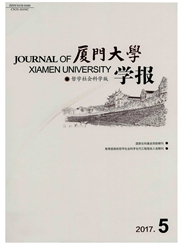

 中文摘要:
中文摘要:
对机器意识的研究,是人工智能哲学领域一个受到广泛关注的问题。按照研究目标与内容的不同,可将机器意识的研究分为五种类别:面向感知意识实现的(MC—P)、面向具体特性意识实现的(MC—C)、面向机制意识实现的(MC—A)、面向自我意识实现的(MC—S)和面向感受意识实现的(MC—Q)。人工智能哲学和脑科学的研究表明,前四类的机器意识研究是切实可行的,而MC—Q的研究则面临着许多争议。援引佛教唯识论的五蕴学说对意识活动进行分析,可以发现:前四类的机器意识都具有意向性,而MC—Q则不具有意向性。对于机器意识的研究与开发,应该搁置有争论的主观体验方面的实现研究,围绕意向性意识能力,采用仿脑与量子计算思想相结合的策略,来开发具有一定意向能力的机器人。
 英文摘要:
英文摘要:
The study of machine consciousness (MC) has drawn considerable attention from researchers in the field of AI philosophy. MC study can be classified into five categories depending on specific objectives and contents of study, i.e. MC - P, MC - C, MC - A, MC - S, MC - Q. As research on AI philosophy and brain science indicates, the first four categories are feasible whereas MC - Q is confronted with much controversy. This study draws upon the Buddhist theory of five aggregates to analyze the activity of consciousness and concludes that the first four categories possess the property of intentionality whereas MC - Q does not. It is suggested that MC study and development, instead of going on with the study of the much disputed issue of subjective experience, should focus on intentional consciousness and aim at creating robots with some degree of intentionality by using an approach combining techniques of brain imitation and concepts of quantum computation theory.
 同期刊论文项目
同期刊论文项目
 同项目期刊论文
同项目期刊论文
 期刊信息
期刊信息
